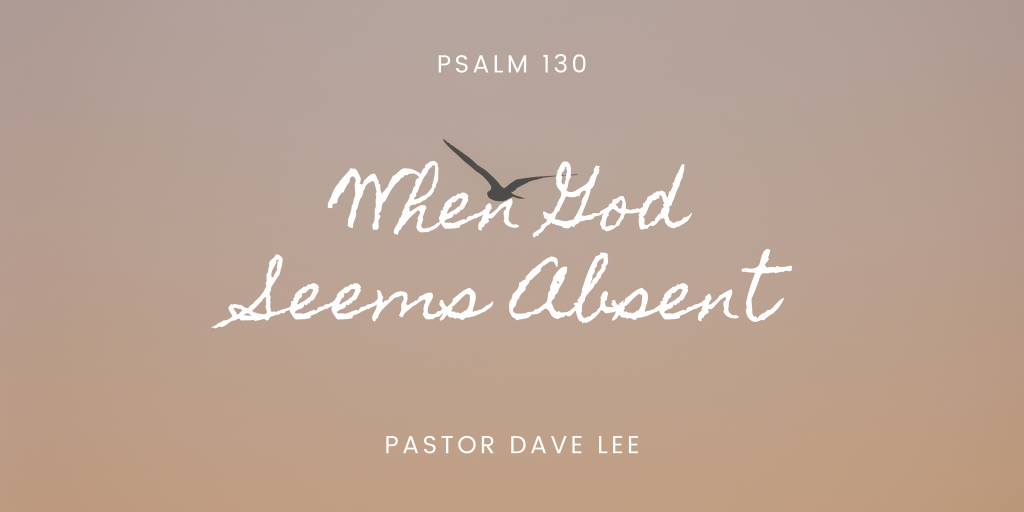Scripture Passage
Psalm 130
A Song of Ascents1 Out of the depths I cry to you, Lord;
2 Lord, hear my voice.
Let your ears be attentive
to my cry for mercy.3 If you, Lord, kept a record of sins,
Lord, who could stand?
4 But with you there is forgiveness,
so that we can, with reverence, serve you.5 I wait for the Lord, my whole being waits,
and in his word I put my hope.
6 I wait for the Lord
more than watchmen wait for the morning,
more than watchmen wait for the morning.7 Israel, put your hope in the Lord,
for with the Lord is unfailing love
and with him is full redemption.
8 He himself will redeem Israel
from all their sins.
Sermon Script
The psalm we read today is called ‘A Song of Ascents‘. Songs of Ascents refer to the psalms that the Israelites sang while making their journey towards Jerusalem.
We are still in the season of Lent. During Lent, we make our journey to the cross. Not only to the cross, but towards the resurrection on Easter. We reflect on the journey that Jesus took over the 40 days. It is fitting that we are reflecting on a Song of Ascents today.
Journey itself is never a straight line. When we look at our own journey, we can see that. Every journey has its ups and downs. Highs and lows. Sometimes we feel confident with where we are headed. Other times we feel lost and confused. They come unexpectedly.
One of our young adults shared with me recently. He had been doing well for a while, but now is going through a dry period in his life. On the outside, everything is fine. He has a job, and lives with his family. Things are stable and good. On the inside, he feels like he has no motivation. He is just going through the motions. He doesn’t know exactly what triggered this. He sees that it is also affecting his faith.
That is the reality of our journey. It is not always bright and sunny. Yes, we experience times of closeness to God. But we also experience times of dryness and darkness. We don’t feel God’s presence as deeply as before. God seems hidden—or absent in our life.
The psalmist also experienced God’s absence. He felt totally stuck. He felt overwhelmed. He didn’t know what to do except cry out to God.
Out of the depths I cry to you, Lord;
Psalm 130:1, 2
Lord, hear my voice.
Let your ears be attentive
to my cry for mercy.
When we can’t see where we are going, that’s when we want to give up the most. We may cry out to God at first, but soon we stop. Especially if we don’t see any change. We stop caring. We let ourselves spiral into darkness. We drown in our feelings of shame and guilt.
It is important to cry out, but it is more important to remember this about God. The psalmist confessed—
But with you there is forgiveness…
Psalm 130:4
Forgiveness means the present darkness is NOT the end. Forgiveness means there is always a tomorrow. Forgiveness means new start and new beginning. Forgiveness means God’s love will save us from our darkness.
The psalmist trusted in God’s forgiveness. He trusted in God’s love. He believed that God will come and save him. He not only cried out to God, but he waited for God. He put his hope in God’s promise.
I wait for the Lord, my whole being waits,
Psalm 130:5, 6
and in his word I put my hope.
I wait for the Lord
more than watchmen wait for the morning,
more than watchmen wait for the morning.
Here, waiting doesn’t mean waiting passively. It’s not like waiting for a bus. Here, waiting refers to an active kind of waiting. Like how the watchmen wait during the night. In the army, it is considered as one of the most difficult duties to fulfill. Waiting with every fiber of our being. Yearning, longing, struggling, and fighting.
That is what waiting with hope looks like. On the outside, you may appear completely still. You may be doing nothing. But on the inside, you are persevering. Your eyes are focused solely on God.
When God seems absent, don’t resign to the darkness you see. Last week, I reflected on seeing our life with the eyes of faith. Sometimes we have problem seeing what we need to see. Our vision gets too blurred.
The greatest temptation we face when we go through dark times is the temptation to isolate ourselves from everything. To cut ourselves off from our community, family, and friends. Including God. We turn ourselves away from even the glimmer of light that shines directly at us.
Put your hope in God. Cry out to God with everything that is on your heart. Then wait. That is the best you can do. God will come. God will comfort you and give you strength.
Jesus experienced that in the wilderness. Scripture tells us that after the 40 days, the angels came and attended him. He even experienced God’s absence on the cross. Scripture tells us that after 3 days, God raised him to life.
God’s absence in our life doesn’t mean God is gone for good. It doesn’t mean that God has abandoned us in our journey. It doesn’t mean that we are all alone.
God’s absence points to the promise of God’s presence coming into our life again. Sorrow may last for the night, but joy will come in the morning. People of faith live with this attitude.


Leave a Reply